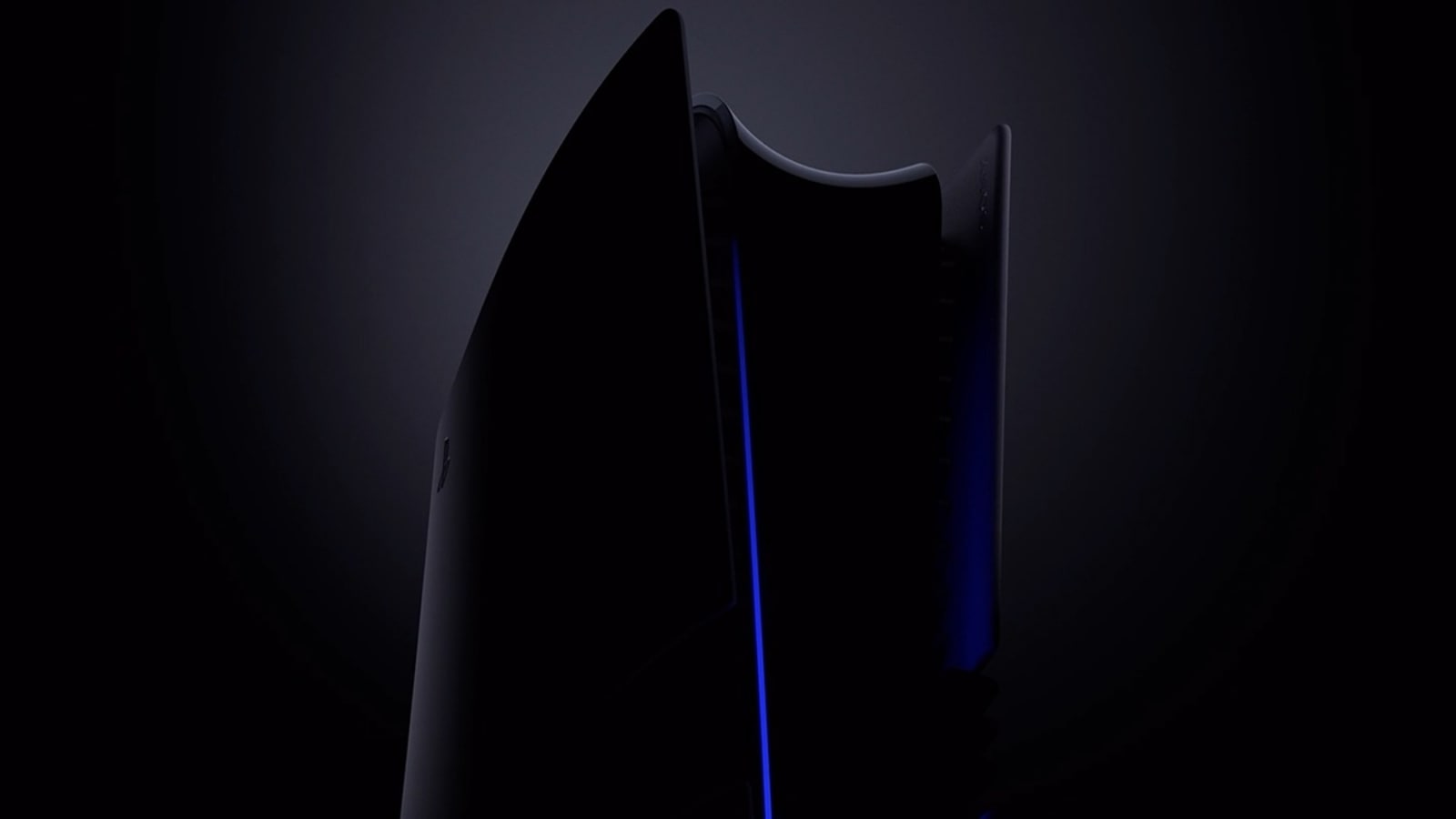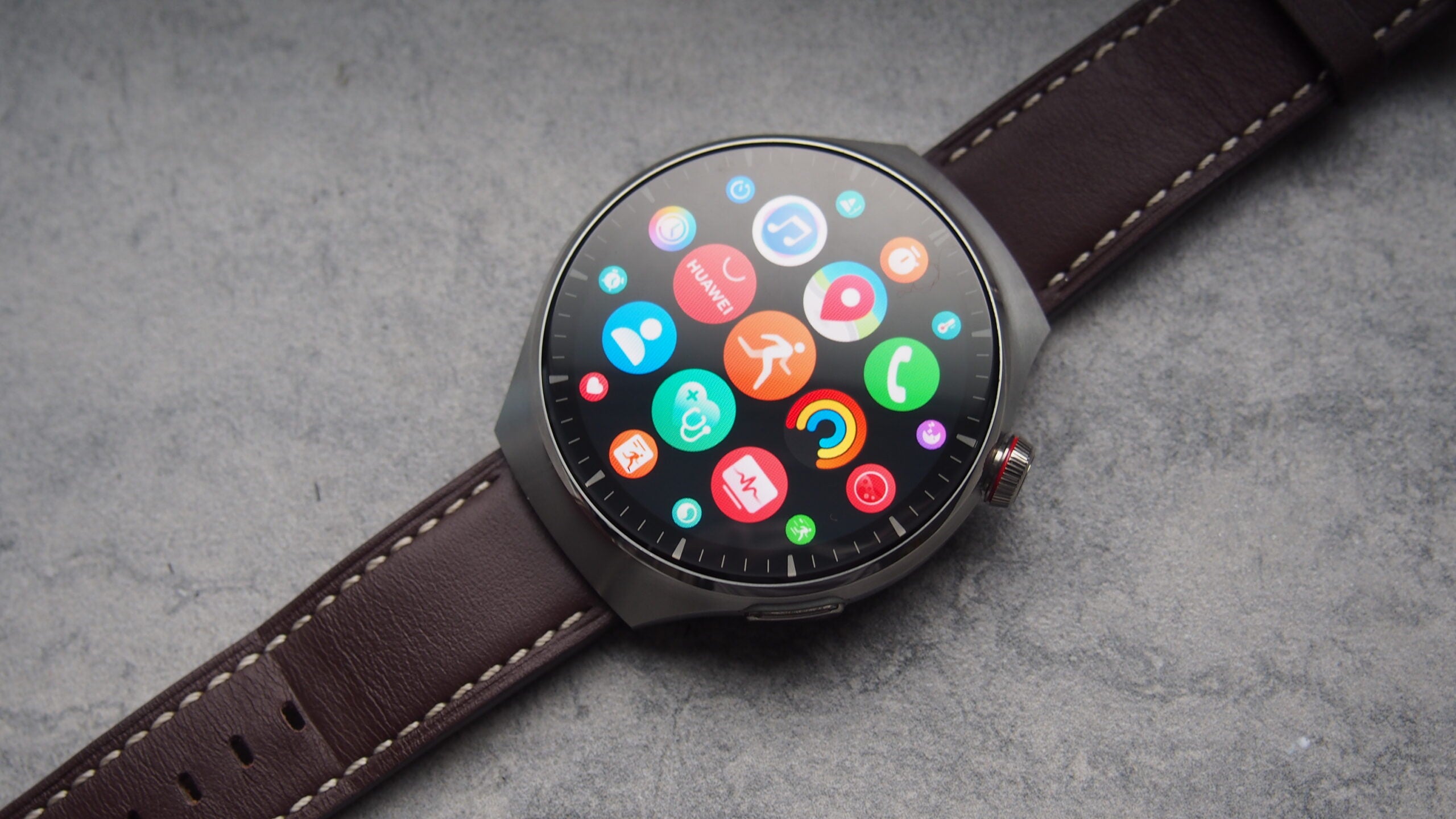Verdict
The Huawei Watch 4 Pro is now a bit of a health and sports tracking powerhouse, but if you want the best smartwatch, we’d still say the Apple Watch reins for iPhone and it falls short in some areas against the Wear OS-powered Samsung Galaxy Watch.
Pros
- Gorgeous screen
- Inventive watch faces
- Slick Harmony OS
Cons
- Viewing angles on screen in bright outdoor light
- Huawei App Gallery still lacks big third party apps
- Some features not available on iOS
Introduction
The Huawei Watch 4 Pro is the successor to the Watch 3 Pro, the high-end smartwatch Huawei launched back in 2021, as its army of wearables continues to grow in number.
Unlike its GT series and the diving-centric Watch Ultimate, the Watch 4 is a clear nod to the Huawei Watches that once packed Google’s Wear OS and matched it up with classic watch styling.
Those Wear OS are long gone now as Huawei’s own HarmonyOS represents the present and future for the company’s devices, with new design elements and software features, particularly on the health front, that Huawei hopes will make the Watch 4 and Watch 4 Pro (which we tested) stand out from the crowd.
Design and screen
- Comes in Pro and non-Pro versions
- 1.5-inch LTPO colour screen
- Waterproof up to 50 metres
Just like with the Huawei Watch 3 series, there are two variants in the form of the Watch 4 and the Watch 4 Pro, the latter of which is the focus here.
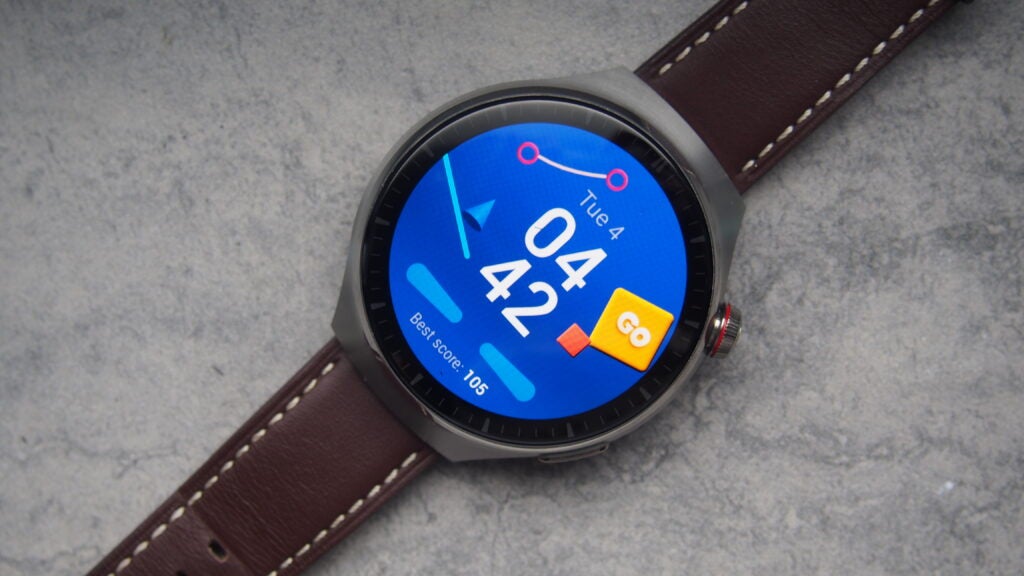
The main differences between the two lie with the case, strap and screen materials used. The Pro is a touch thicker than the standard Watch 4 (12.9mm vs 10.9mm) and heavier too, so if you want the slimmer and lighter option, it’s the non-Pro version you want.
I had the 48mm-sized Watch 4 Pro to test, which sees a jump in case size and uses aerospace-grade titanium in its chassis, a removable leather strap and a more luxurious sapphire glass screen. Some of those elements definitely feel nicer than others. The matte silver titanium case is a nice match for Huawei’s sizable 1.5-inch, LTPO AMOLED touchscreen display, though we found the leather strap attached to not to be as attractive as the case it’s attached to. There is a titanium strap alternative if you want an all-metal look as well.
The star of the show is that screen. It’s big, sharp, colours really pop on it and you can keep the screen set to always-on. It really elevates what it’s like to glance down at the Watch 4 Pro. What I would say though is that the viewing angles aren’t always great in brighter outdoor light, while the bezel surrounding it could be a touch slimmer or not be there at all.
Huawei includes a single physical button that launches its new Quick bar software feature, while the rotating crown further adds a touch of sophistication to interacting with the onboard software.
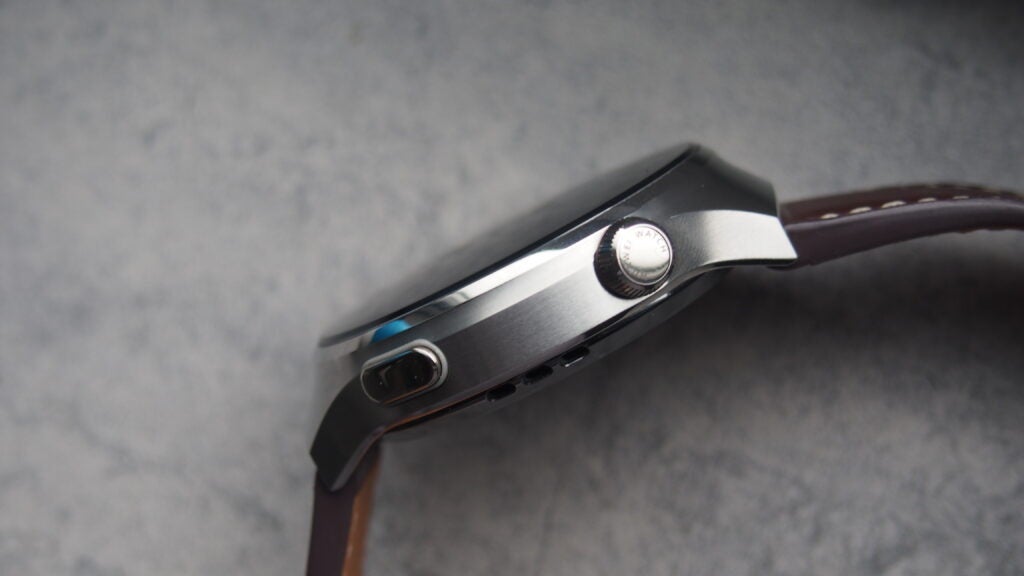
If you want to go swimming with the Watch 4 Pro, you can as it carries a 5ATM water rating making it safe to be submerged in water up to 50 metres. In addition to that, it joins Huawei’s Watch Ultimate in being suitable for diving in depths up to 30 metres.
Features and performance
- Latest version of Harmony OS
- Third party apps
- New UI elements
Like the previous watch and all of Huawei’s latest watches, the Watch 4 Pro runs on HarmonyOS and at the time of this review we’re up to version 3.1. It’s compatible with both Android and iOS, but pairing with an iPhone won’t get you the full experience. You can’t access features like Huawei Music or Huawei’s payment support.
The experience of using HarmonyOS is pretty good overall. It’s well optimised to that large display; visually it looks very slick and it also runs smoothly. Huawei has added in some new UI elements like the ability to choose from more widgets, a quick bar to let you pick from your most frequently used features, and the floating task ball which pops a running app to the top of the screen while you interact with another one.
Those additions do work in the confines of the watch’s display and doesn’t feel like it’s making the area feel too busy, making it a better watch to multitask on. Crucially, it doesn’t see a drop in performance either.
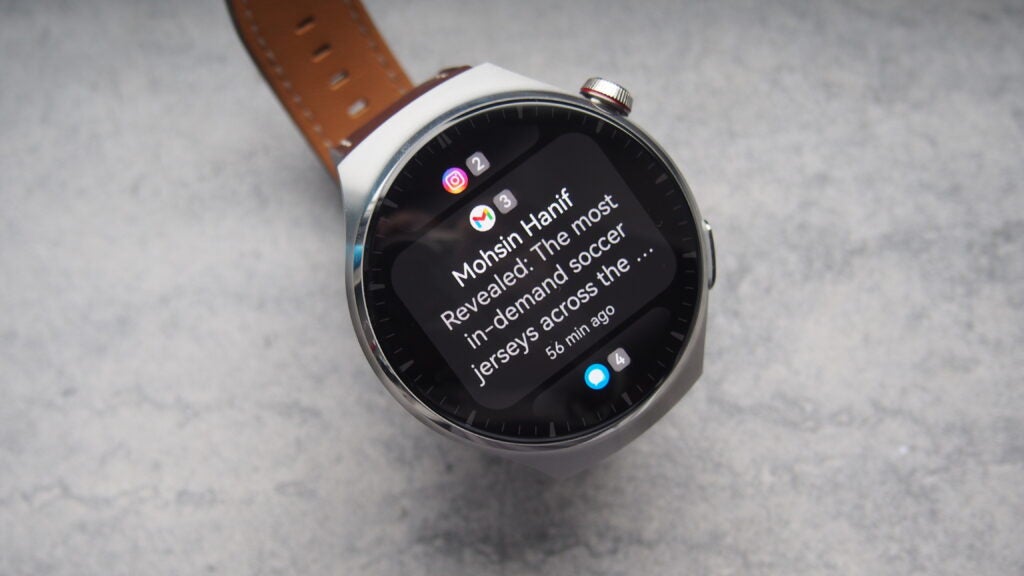
In terms of what you have to tap into as a smartwatch, there’s plenty here. I’m a huge fan of the new preloaded watch faces, which usefully indicate the level of power they sap from the battery when in use. While Huawei makes a big deal about its planet-centric faces, I think some love should be shown particularly to the Variforms watch face, which might be one of the best examples of turning a watch face into a time killer game. If you want more watch faces, you can buy some via the Huawei Health phone app, but some of those faces are as expensive as £5, which seems a touch excessive.
Faces aside, you’ve got all the things you’d expect to find on a smartwatch and features that Huawei has previously done a very good job with. I’m talking weather updates, music playback controls, timers, setting up alarms and viewing and displaying notifications.
Huawei’s Celia assistant makes use of the onboard microphone, but is better suited to basic questions as opposed to the more contextual queries you can deliver at assistants like the Google Assistant, or Alexa and Siri. There is the ability to use the Watch 4 Pro as a standalone device with an eSIM for when you’re away from your phone. Huawei claims there’s a wealth of third party apps available to download from its app store, but it doesn’t take long to know that you’ll find significantly more high profile third party apps in Apple and Google’s storefronts by comparison.
Using the Huawei Watch 4 Pro day-to-day as a smartwatch is fine for those core smartwatch features, but in terms of things like payments, app and smart assistant support, it doesn’t really best the competition.
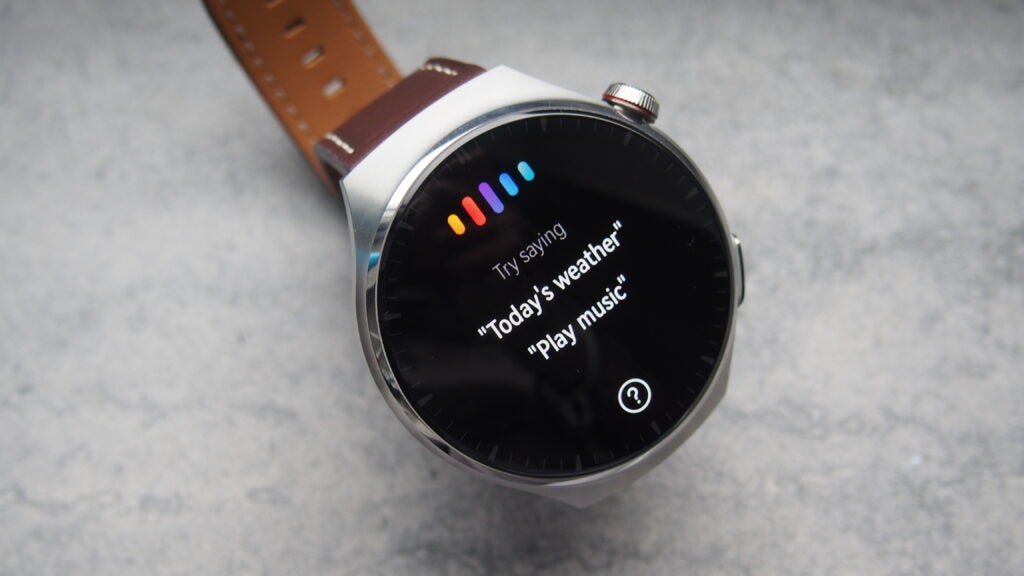
Fitness and health tracking
- 100+ sports modes
- ECG sensor
- Health Glance mode and respiratory checks
Huawei has already done good work in making its watches more useful for tracking your exercise and health, and it’s the latter that it’s seeking to improve with the Watch 4 Pro. We now have features like Health Glance, which grabs multiple health metrics including your heart rate, SpO2 and respiratory data from a single measurement. Both Amazfit and Garmin offer similar features to this.
There’s also an ECG sensor to take on the spot measurements when you place your finger on the electrodes baked into the flat physical button. It can even detect when your heart rate is abnormally high or low, and there’s now the ability to measure for arterial stiffness which is related to high blood pressure or hypertension. Last up is a new respiratory check that uses auditory sensors to listen to your cough whilst in a quiet space to assess that your lungs are fully functioning.
In just health features alone, the Watch 4 Pro offers a lot. The ECG readings seemed reliable against the ECG capabilities of an Apple Watch and against heart rate readings from a pulse oximeter. Skin temperature readings felt more reliable than it did on past Huawei Watches and the Health Glance checks didn’t seem to throw up any odd sorts of data. The respiratory check through coughing told us it was normal, so thankfully no abnormalities to report here. That data is viewable in the Huawei Health app, neatly explaining what typical metrics should be.
An experimental feature that isn’t here but is available in China is the ability to assess blood sugar levels. It’s still based on a small research set, so it’s likely to be a feature we won’t see for some time until it’s delivering a strong enough level of accuracy.
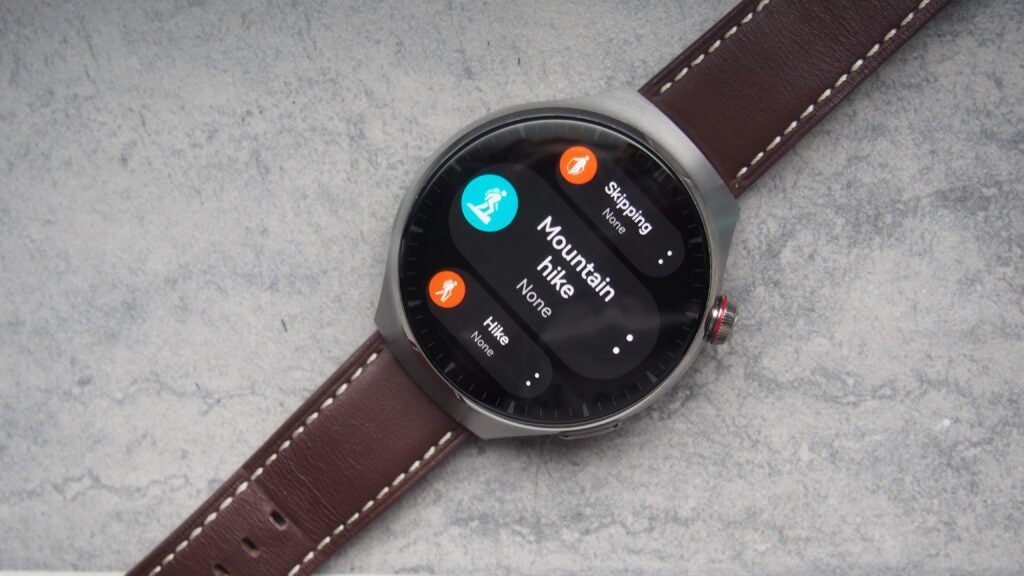
In terms of tracking your exercise and general fitness, you’re well covered on that front. There’s over 100 workout modes including the diving modes from the pricier Watch Ultimate, and it also includes the route back navigation mode Huawei recently added to watches like the GT Runner to improve its usefulness outdoors. There are more recently introduced running metrics like Running Ability, VO2 Max and recommended recovery times for those who want a bigger hit of stats. Huawei has redesigned its daily activity rings based on the World Health Organization recommendations too, and it’ll track your sleep while providing tips to help you improve your sleep time.
As a fitness tracker, it’ll nudge you when you’ve not been active enough during the day and the new-look activity rings do look a lot nicer on that LTPO display. Daily step counts were in the ballpark of Garmin’s step tracking with a breakdown of your Move, Exercise and Stand rings viewable in the Health app. Sleep tracking performed well too, and offered similar sleep duration and sleep scores as the Oura Ring Gen 3.
For sports tracking, I’ve run, rowed, jumped in the pool and on a treadmill with the Watch 4 Pro and it’s had its good and bad moments. On outdoor runs, GPS tracking performed well and offered up similar metrics for data like average pace. In a race however it struggled to pick up a reliable GPS connection at the start and was well short of the distance of the course. Heart rate data was good in general for steady paced workouts, and slightly faltered for more high intensity workouts, but you can pair an external heart rate monitor to improve that accuracy.
We’ve been pretty impressed by what Huawei offers on the sports tracking front and now it’s adding richer health insights into the mix to give the Watch 4 Pro a much greater appeal for those who don’t just care about their next marathon PB.
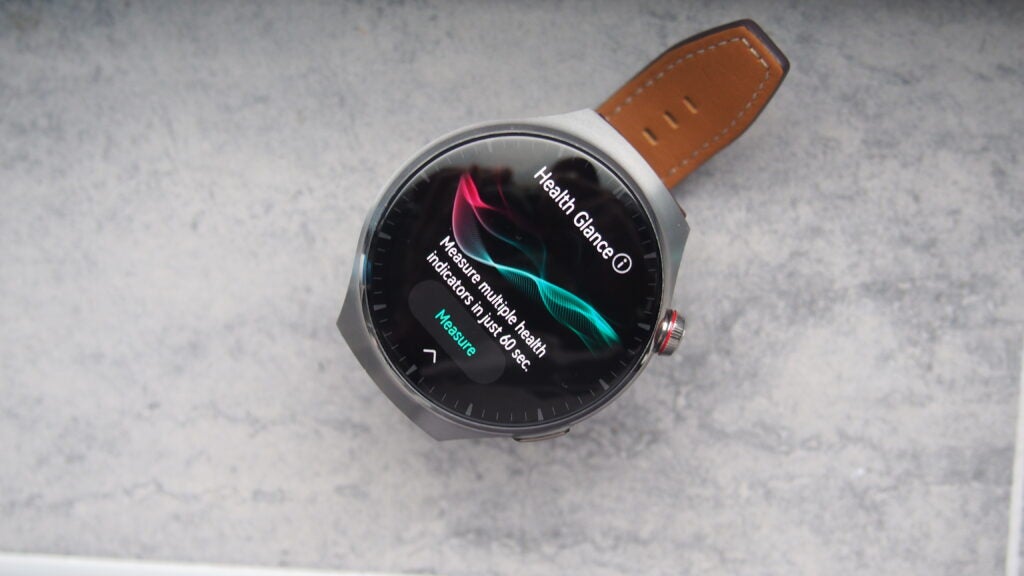
Battery life
- Up to 4.5 days in typical use
- From 12-21 days in ultra-long battery mode
- Fast charge mode
When Huawei moved away from Wear OS it managed to push the battery performance on its watches in a really notable way. The Huawei Watch 3 however felt like a step back as it only managed 2-3 days in smartwatch mode. This time around Huawei has promised more battery life in that mode and it has certainly delivered.
That 2-3 day stint has now become 4.5 days in what it deems typical usage. I managed to get up to five days in this mode, but we’d say 4.5-5 days seems about right. It will be less with the display set to always-on as well. There’s also an ultra-long battery mode, which disables mobile and Wi-Fi connections. That will get you anywhere from 12-21 days depending on how much battery you currently have left to play with.
There’s even a useful power consumption mode to see what is sucking up the most battery, and a power saving menu to make sure you’re not using features that quickly drain the juice.
When you do get low, there’s quick charge support to get you a day’s use from a 15-minute charge on Huawei’s white puck-shaped charging cradle.
Ultimately, Huawei has delivered more battery and it’s the kind of extra battery that has made the Watch 4 Pro less frustrating to use than the Watch 3.
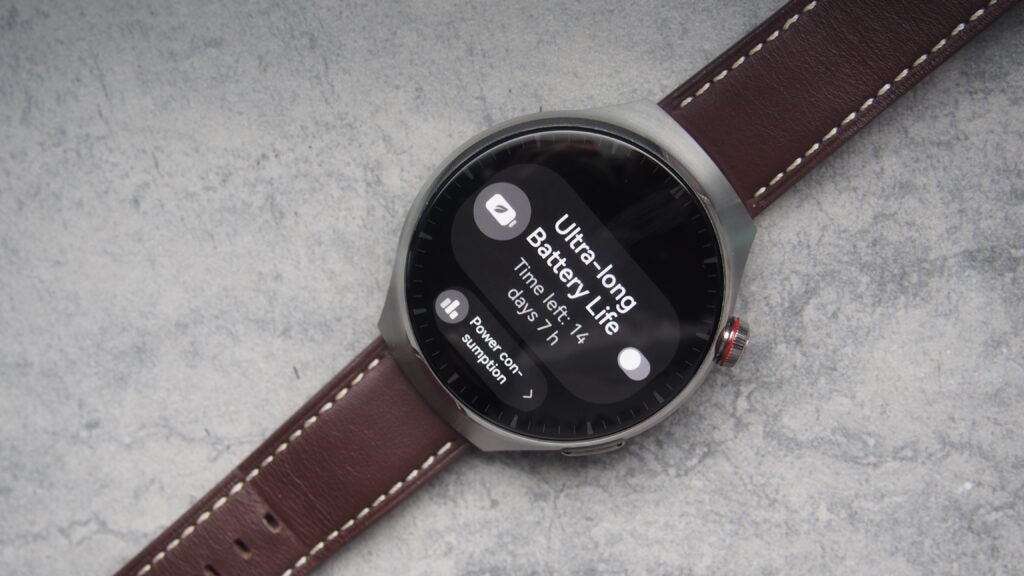
Latest deals
Should you buy it?
If you want a smartwatch with lots of fitness and health features: Huawei has suitably ramped up the health monitoring skills to match its already solid array of sports tracking modes.
You want the best smartwatch at this price: The Watch 4 Pro is expensive and it’s hard to argue that you should grab it over an Apple Watch.
Final Thoughts
Huawei is getting a lot of things right with its smartwatches. Whether it’s design, the slickness of the software or the fact that it continues to push forward on the battery front as well. It still lacks in some areas compared to other smartwatches, especially when you look at the core smartwatch features where the Apple Watch 8 and Samsung Galaxy Watch 5 edge it. You’ll get a very good experience from the Watch 4 Pro, but we’re not sure it quite betters what else is out there.
How we test
We thoroughly test every smartwatch we review. We use industry standard testing to compare features properly and we use the watch as our main device over the review period. We’ll always tell you what we find and we never, ever, accept money to review a product.
FAQs
Yes, you can answer calls on the Huawei Watch 4 Pro. If you activate the eSim support, you can also make and handle calls without your phone nearby.
The Huawei Watch 4 can be used for contactless payments once you’ve set up support in the Huawei Health app.








